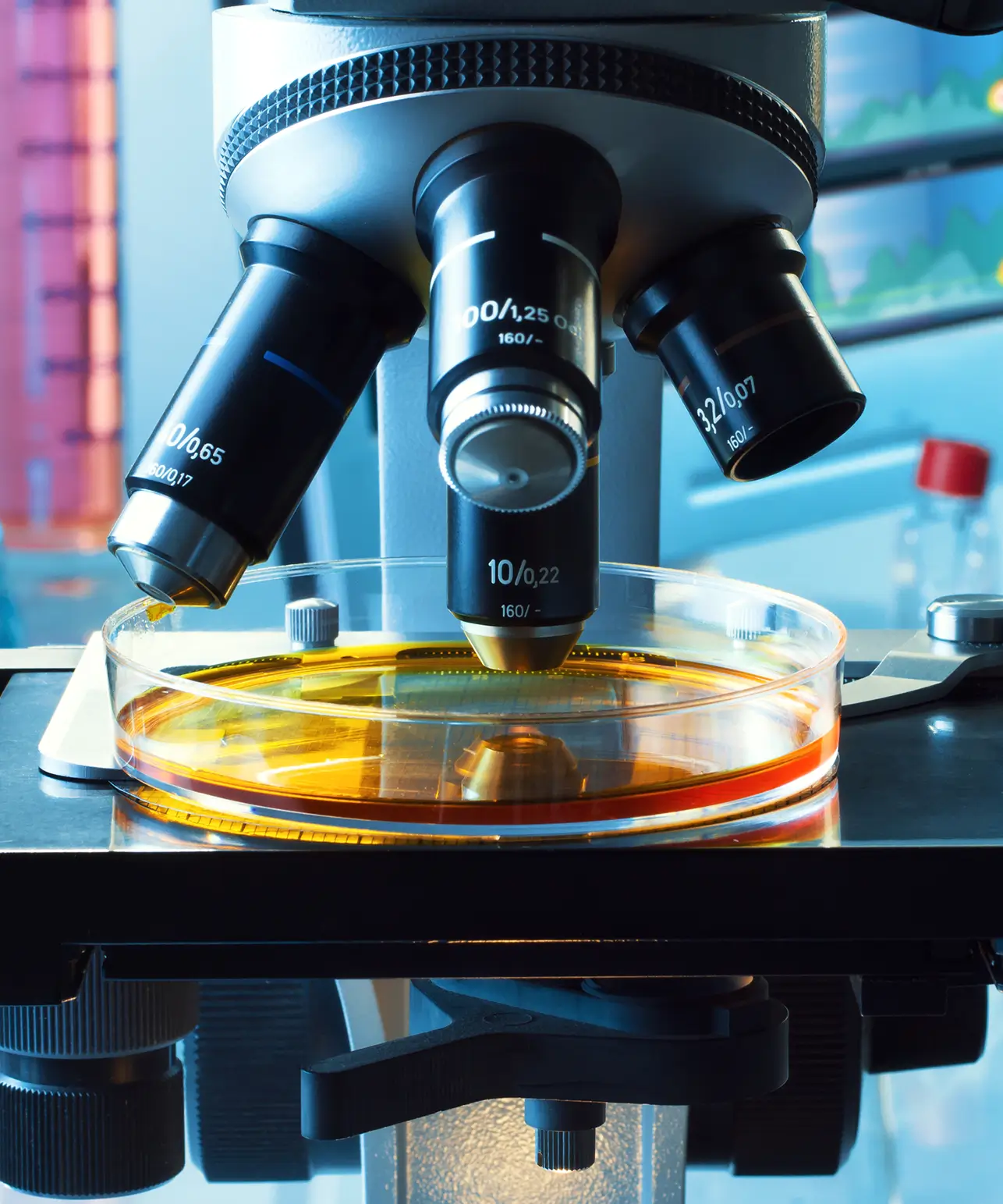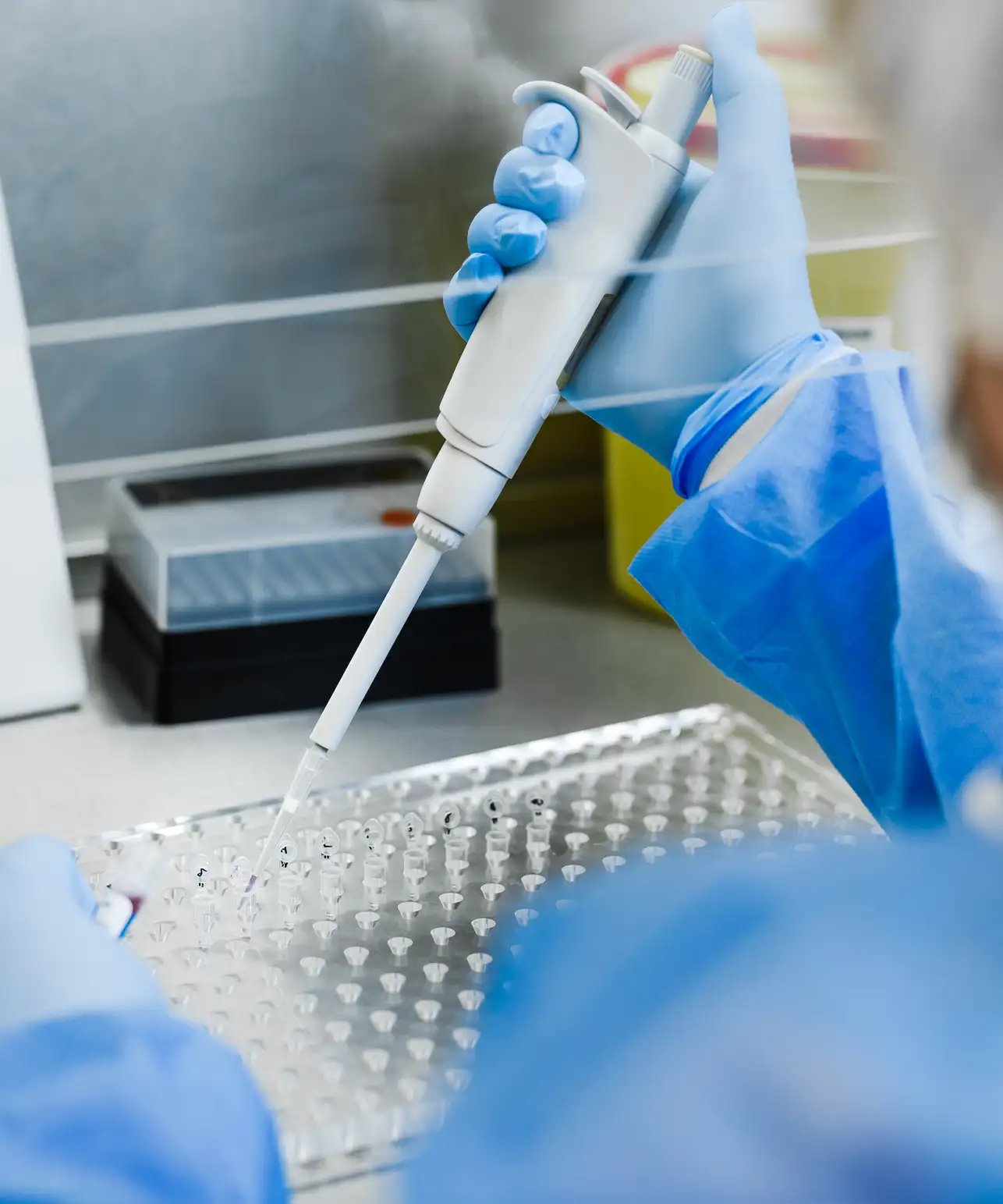Lab Sample Tracking Software
At SCC Soft Computer, we offer a cutting-edge suite of solutions designed to streamline workflows, enhance productivity, and drive breakthroughs in patient care. Our mission is to revolutionize the way laboratories operate, whether you’re part of a health system, regional hospital, public health service, commercial lab, research facility, blood management organization, or transplant medicine unit.
Enterprise Scale
- Customized modules and product suites designed to meet the unique needs of enterprise laboratories.
- Seamless integration with existing enterprise systems to streamline workflows and enhance interoperability.
- Industry-leading security measures to safeguard sensitive laboratory data and ensure regulatory compliance.
- Dedicated technical support and comprehensive training programs.
Commercial Flexibility
- Flexible modular solutions that cater to the specific needs and budget constraints of smaller labs.
- Scalable cloud-based solutions that enable growth without significant upfront investment in infrastructure.
- Custom workflow engine to automate processes to improve operational efficiency.
- Full suite of outreach and operational solutions to improve customer service and revenue cycle management.
Driving Growth Across Diverse Industries
SCC Soft Computer is dedicated to delivering tailored solutions that enhance efficiency, accuracy, and excellence for clients across a wide range of industries, from complete healthcare systems to commercial labs.
Health Systems
Our solutions help health systems streamline workflows and improve the coordination of patient care, especially in facilities with multiple sites. By unifying systems under a single database, SCC products reduce turnaround times and facilitate seamless operation across different time zones, eliminating the need for multiple systems.
Solutions for Health Systems ›
Regional Hospitals
For regional hospitals, SCC solutions optimize resource utilization and elevate the quality of patient care. Our consistent interface design ensures a smooth user experience, while direct integration with laboratory instruments eliminates the need for middleware, simplifying operations and reducing errors.
Solutions for Regional Hospitals ›
Research
Research laboratories benefit from our solutions through enhanced data sharing and collaboration capabilities, crucial for high-volume testing environments. Our platforms perform real-time data analytics, enabling on-demand research and providing valuable insights that drive scientific discovery.
Solutions for Research ›
Commercial Laboratories
Commercial laboratories can achieve greater accuracy and efficiency in high-volume testing with SCC’s comprehensive solutions. Our LIS streamlines quality control workflows and minimizes the need for human intervention, allowing staff to focus on more critical tasks. Our integrated approach covers both the healthcare and business sides of operations, including revenue cycle management (RCM) for comprehensive operational oversight.
Solutions for Commercial Laboratories ›
Transplant Medicine
SCC Soft Computer’s solutions for Transplant Medicine provide unparalleled accuracy and efficiency, streamlining donor and recipient matching processes to ensure optimal outcomes. Our comprehensive software suite supports the entire transplant workflow, from data management and compliance tracking to real-time analytics, empowering healthcare professionals to deliver life-saving treatments with confidence.
Solutions for Transplant Medicine ›
Public Health
SCC Soft Computer’s solutions for Public Health Laboratories are designed to enhance disease surveillance, streamline testing workflows, and improve data management, ensuring timely and accurate reporting. Our robust software suite empowers public health professionals with advanced analytics and real-time monitoring capabilities, enabling them to respond swiftly and effectively to public health challenges.
Solutions for Public Health ›
Blood Management
SCC Soft Computer’s Blood Management solutions streamline the entire blood supply chain, from donor recruitment to transfusion tracking, ensuring the highest standards of safety and efficiency. Our advanced software suite offers seamless integration with laboratory systems, providing real-time data and analytics to optimize inventory management and enhance patient care.
Solutions for Blood Management ›
About SCC Soft Computer
Founded in 1979 by visionary leader Gilbert Hakim, SCC Soft Computer has established itself as a global pioneer in clinical information management systems. We specialize in providing state-of-the-art laboratory information systems (LIS) that empower healthcare organizations to optimize workflows, enhance patient care, and drive innovation. With a steadfast commitment to excellence, integrity, and customer focus, SCC Soft Computer combines cutting-edge technology with unparalleled support to deliver transformative solutions across diverse healthcare sectors. Our mission is to revolutionize healthcare by enabling laboratories worldwide to achieve unprecedented levels of efficiency and accuracy, ensuring that our clients remain at the forefront of medical advancements.
About UsLab Sample Tracking Software
Lab sample tracking software plays a mission-critical role in laboratories that prioritize data accuracy, compliance, and operational efficiency. Whether managing clinical diagnostics, pharmaceutical research, or environmental testing, laboratories must maintain complete control over sample movement—from collection through processing to archiving or disposal. Without structured tracking, labs risk mislabeling, lost specimens, delayed results, and regulatory violations.
A purpose-built tracking system assigns each sample a unique identifier at the point of accession. As samples move between departments, instruments, or storage locations, the software records every event with time-stamped precision. This ensures full traceability, allowing managers to instantly answer: Where is the sample? What has been done to it? Who last handled it?
Free versions of lab sample tracking software are often available for academic use or low-volume labs. These may include basic tools for labeling, spreadsheet exports, or sample logging. However, most free options lack critical functionality such as real-time inventory views, automated status updates, chain-of-custody logs, and instrument interfacing. For labs operating under GLP, ISO 17025, or FDA 21 CFR Part 11, these omissions create unacceptable risks.

Tracking software also eliminates the need for paper-based logs or disconnected spreadsheets. Manual methods introduce transcription errors, duplicate entries, and time-consuming reconciliations. More importantly, they cannot enforce validation rules or maintain audit trails—making inspections and quality audits significantly harder.
In high-throughput labs, tracking systems interface directly with LIMS and barcode readers to automate status changes, alert staff to bottlenecks, and enforce workflow rules. If a sample bypasses a required step or sits unprocessed past an acceptable time window, the system triggers alerts to prevent non-compliant actions. This level of real-time oversight is essential in time-sensitive workflows such as microbiology, pathology, and molecular diagnostics.
A well-implemented sample tracking system also supports sample archiving, destruction logs, and freezer inventory mapping. This is critical in biobanks, research centers, and clinical trial environments where specimens must be stored and retrieved under strict environmental controls. Configurable rules can govern expiry dates, storage conditions, access rights, and disposal authorizations.
Beyond traceability, sample tracking software provides valuable operational analytics. Managers can review metrics on test turnaround times, sample rejection rates, processing delays, and technician performance. These insights drive resource planning, quality improvement, and lab-wide accountability.
As labs scale, the limitations of manual or basic systems become more pronounced. Real-time access, system alerts, and workflow automation are no longer luxuries—they’re requirements. The return on investment for a dedicated tracking solution is realized through reduced errors, faster processing, easier audits, and improved data quality across every touchpoint.
The promise of lab sample tracking software free tools may suffice for test labs or teaching facilities, but high-complexity labs require software built for speed, compliance, and scalability. Whether part of a larger LIMS deployment or as a standalone platform, tracking software ensures no sample is ever misplaced, misidentified, or mishandled again.
Lab Sample Management Software
Lab sample management software extends beyond tracking to include every operational detail associated with sample intake, processing, storage, and lifecycle control. While tracking answers “where” a sample is, management software addresses the “what,” “why,” and “how”—capturing metadata, enforcing workflows, monitoring storage conditions, and supporting full lifecycle governance.
Effective sample management in laboratory environments requires a system capable of managing diverse specimen types, collection protocols, and analytical methods. The software must be able to classify samples by type. Associate them with studies or patients, monitor storage variables like temperature or humidity, and track usage history across tests and aliquots. It should also support bulk operations, such as batch imports, pooled sampling, and high-throughput processing routines.
Free versions of lab sample management software do exist and are occasionally sufficient for single-user academic research or very small lab setups. These tools often rely on static templates, basic database fields, or Excel-based interfaces. However, they rarely offer the integrations, validations, or audit functionality required in regulated clinical or industrial settings.
Enterprise-grade platforms, by contrast, include role-based access control, real-time dashboards, reagent consumption tracking, integrated sample labeling, and compliance-ready audit trails. These capabilities are especially critical for labs operating under FDA, EPA, CLIA, GLP, or ISO frameworks. In such environments, the ability to track not just sample location but processing history, analyst actions, chain-of-custody, and deviations is mandatory.

Choosing the best lab sample management software depends on the lab’s sample complexity, volume, and regulatory exposure. For biobanks and clinical trial labs, the software must support long-term archival storage, sample reservations, reprocessing schedules, and temperature event logs. In research or analytical labs, the focus may be on metadata flexibility, searchable archives, and instrument interfacing.
The best lab management software also supports automation. Integration with barcode scanners, liquid handlers, automated storage systems, and laboratory instruments ensures sample status updates happen in real time. It prevents data discrepancies, enables seamless workflow execution, and frees technicians from manual data entry.
Sample management software also supports inventory intelligence. It links samples with reagents, kits, and consumables—helping labs forecast material needs, track usage trends, and avoid bottlenecks caused by stockouts. In high-throughput labs, this integration becomes essential for maintaining uptime and maximizing test efficiency.
Configurability is key. Labs must be able to define their own sample types, workflows, labels, user permissions, and quality control thresholds without vendor intervention. This autonomy accelerates implementation, improves system adoption, and supports rapid adjustment to changing lab requirements—whether due to new tests, regulatory changes, or business growth.
Ultimately, lab sample management software transforms static logs into dynamic, real-time systems that ensure sample integrity and operational continuity. Labs gain a single point of truth for all sample-related activity—simplifying audits, accelerating workflows, and strengthening lab-wide accountability.
Lab sample management software free versions may work as stopgaps, but for labs dealing with regulated workflows or scaling operations, investing in a robust, configurable platform is non-negotiable. The operational and compliance risks of fragmented sample data far outweigh the cost of purpose-built software.
Best Lab Sample Tracking Software
The best lab sample tracking software provides end-to-end visibility across the entire sample lifecycle, integrating location tracking, chain-of-custody documentation, and real-time status monitoring. In high-volume environments—such as hospital labs, biopharma R&D, and public health institutions—these capabilities aren’t optional. They are essential for meeting compliance requirements, ensuring diagnostic accuracy, and maximizing throughput.
The use of a laboratory sample tracking sheet Excel format remains common in low-volume or early-stage labs, but spreadsheets are static, prone to version control issues, and lack the automation needed for real-time tracking. These manual tools cannot interface with instruments, barcode scanners, or storage systems, leaving labs vulnerable to missed handoffs, delayed processing, or unreconciled sample movement.
By contrast, dedicated sample tracking software automates every phase of sample handling. It generates unique identifiers at the point of accession, integrates with barcode readers for fast lookup, and logs all handling events—from test preparation to archiving—with time-stamped accuracy. This eliminates the risks associated with manual handoffs, missed entries, and delayed updates.
The best lab sample tracking software supports both active and archival sample workflows. It monitors freezer inventory, triggers expiration alerts, and tracks temperature excursions for samples requiring environmental control. This is especially important in research labs handling long-term biorepositories or pharmaceutical labs managing stability studies.
Advanced platforms also provide integration with LIMS, ELNs, and instrument software. This ensures sample metadata flows automatically into testing systems, enabling faster test setup and consistent result association. For labs with strict regulatory obligation this traceability supports defensible audit documentation and regulatory readiness.
Many labs seeking the best lab sample tracking software for LIMS prioritize systems that embed seamlessly within the LIMS architecture, reducing the need for middleware or duplicate data entry. These integrated systems allow lab personnel to move from order entry to result reporting without leaving a unified interface, improving efficiency and reducing training overhead.
Strong configuration options are essential. The tracking system should allow labs to define sample types, status stages, access permissions, and storage rules without requiring custom code or vendor intervention. It should also support mass sample registration, batch processing, and high-throughput barcode workflows—ensuring performance at scale.
Lab sample management software that doubles as a tracking platform further enhances utility by offering audit logs, technician accountability, instrument interaction history, and report generation tools. These features allow labs not only to track location but to understand sample movement context, improving both compliance and operational analytics.
When comparing vendors, labs must assess scalability, uptime guarantees, data security protocols, and user experience. Platforms must be intuitive enough for lab techs to adopt without disrupting workflows, yet powerful enough to meet the demands of auditors, IT, and compliance teams.
The bottom line: while free templates or Excel-based tools may provide basic tracking, they cannot compete with the real-time accuracy, automation, and audit-readiness delivered by purpose-built platforms. Labs handling regulated diagnostics, critical R&D, or complex testing workflows need robust, interoperable solutions—not workarounds.
Sample Management Software
Sample management software for laboratory environments plays a foundational role in ensuring every sample is cataloged, processed, and preserved with full transparency and regulatory compliance. It provides centralized oversight of samples’ metadata, movement, analytical status, and final disposition—replacing manual logs, siloed spreadsheets, and disconnected inventory databases with an automated, audit-ready platform.
The best systems support all stages of the sample lifecycle, including receipt, labeling, analysis, storage, aliquoting, transfer, reanalysis, and disposal. For labs with specialized workflows—biobanking, pharmaceutical QA/QC, clinical research, or environmental testing—lab sample management software must be configurable enough to model discipline-specific protocols without disrupting core functionality.
Real-time data entry, automated barcode generation, and dynamic filtering make it possible to monitor where samples are, how they’ve been processed, and when they expire. These features help labs enforce chain-of-custody protocols, adhere to GLP or ISO 17025 standards, and manage quality assurance from end to end.
One of the advantages of sample management in laboratory environments is the ability to avoid redundant processing and prevent errors associated with lost or misidentified samples. The software not only captures who handled a sample and when but links those actions to batch records, test results, or procedural deviations—creating a defensible audit trail.
The best sample management software also supports flexible storage mapping—allowing users to define locations down to freezer, rack, box, or tube. It can flag temperature excursion events, alert staff to expiring specimens, and even lock samples pending further authorization or investigation. This is essential in biopharma and clinical trial settings, where sample integrity and chain of custody have direct regulatory and patient care implications.
Automation capabilities—such as instrument integration, scheduling, and workflow enforcement—help eliminate human error and standardize sample throughput. In high-volume labs, this means fewer delays, tighter QC enforcement, and more efficient use of technician time.
Advanced software also includes analytics dashboards and reporting tools that help lab managers assess trends, identify bottlenecks, and optimize resource planning. They can track storage capacity, view turnaround time metrics, and measure technician workload in real time. These operational insights strengthen both performance management and regulatory defensibility.
Free or entry-level solutions may provide simple registration and lookup features but often lack the data validation, multi-user concurrency, and compliance logging necessary in high-stakes testing environments. Over time, these limitations introduce friction that undermines productivity, visibility, and audit readiness.
In selecting sample management software, labs must ensure compatibility with their LIMS, EHR, or ERP systems. The software should enable seamless data flow across platforms to avoid duplication, manual data entry, and disconnected datasets. For multi-site organizations, centralized configuration and data normalization are also critical.
Ultimately, effective sample management software is not a static recordkeeping tool—it’s a real-time system of control. It unifies laboratory operations, enhances traceability, ensures compliance, and provides the oversight needed for sustainable lab performance.
Sample Tracking Software
Sample tracking software for laboratory environments provides the infrastructure to manage every movement and status change a sample undergoes, from initial intake through processing, testing, storage, and eventual disposal. While sample management focuses on the broader lifecycle and metadata, tracking zeroes in real-time, specimen location, chain of custody, and step-by-step handling documentation.
The best sample tracking software enables labs to maintain complete visibility across all departments, instruments, and storage locations. It creates a digital fingerprint for each sample—time-stamping every event, from check-in to destruction. Whether used in clinical diagnostics, pharmaceutical R&D, or public health labs, tracking software eliminates blind spots and ensures full traceability at every phase.
Using a laboratory sample tracking sheet Excel format might suffice for small teams or academic projects, but these manual methods introduce critical risks: lack of version control, no audit trails, and no support for real-time updates. In regulated labs, these tools fail to meet documentation standards.
Modern tracking software integrates with barcode readers, LIMS, and laboratory automation systems to record handling events automatically. When a sample is scanned into a storage unit, transferred between labs, or sent to an instrument for testing, the system captures that event and updates the sample’s status in real-time. This visibility allows supervisors to monitor workflow throughput, locate bottlenecks, and preempt process breakdowns.
In addition to movement tracking, sample tracking systems also support environmental monitoring. If a freezer experiences a temperature excursion, the software can flag all affected samples and generate compliance reports. This is critical in biobanking, stability studies, and molecular diagnostics—where sample degradation compromises both results and regulatory standing.
Role-based access control ensures only authorized users can modify sample records or move specimens. Every interaction—whether by technician, supervisor, or quality manager—is recorded and linked to user credentials. This strengthens both internal accountability and external audit readiness.
Where the software proves its value is in multi-site and high-throughput environments. Sample transfer between locations, offsite storage, third-party testing, and outsourced logistics become traceable in a single, centralized system. These capabilities eliminate siloed data, reduce reconciliation time, and improve transparency across organizational boundaries.
Some labs attempt to combine off-the-shelf solutions with custom macros or scripts to create tracking functionality. However, these workarounds are brittle, hard to maintain, and rarely meet the performance or compliance requirements of enterprise labs. Purpose-built sample management software offers robust scalability, integration capabilities, and vendor support—ensuring consistent performance under real-world conditions.
The best platforms also offer visual interfaces that map storage hierarchies, allowing users to navigate freezers, racks, drawers, and boxes with drag-and-drop simplicity. This makes it easier to allocate space, prevent overcrowding, and manage sample retrieval efficiently. Integrated alerting and expiration logic ensure no sample is misplaced, mishandled, or overlooked due to manual oversight.
For labs using or evaluating lab sample management software, the tracking component should never be treated as a secondary feature. It is the operational layer that enforces control, enables compliance, and ensures every sample is where it should be—when it needs to be there.
By centralizing tracking functions, labs reduce risk, improve efficiency, and build defensible records that stand up to inspections. In regulated, high-volume, or research-intensive environments, anything less is a liability.
Choosing the Right LIMS
Selecting the right laboratory information management system requires more than software comparison—it demands alignment with your lab’s technical, regulatory, and operational priorities. SCC’s SoftLIMS® is purpose-built to support high-throughput environments where traceability, automation, and compliance are non-negotiable.
The best LIMS software supports sample tracking, lifecycle management, user-defined workflows, and instrument integration in a single platform. SoftLIMS provides real-time control over every specimen, from accessioning to final disposal, with audit-ready documentation and centralized oversight.
For labs seeking to eliminate manual errors, reduce turnaround times, and ensure inspection readiness, SoftLIMS offers the functionality, configurability, and vendor reliability required for long-term performance.










